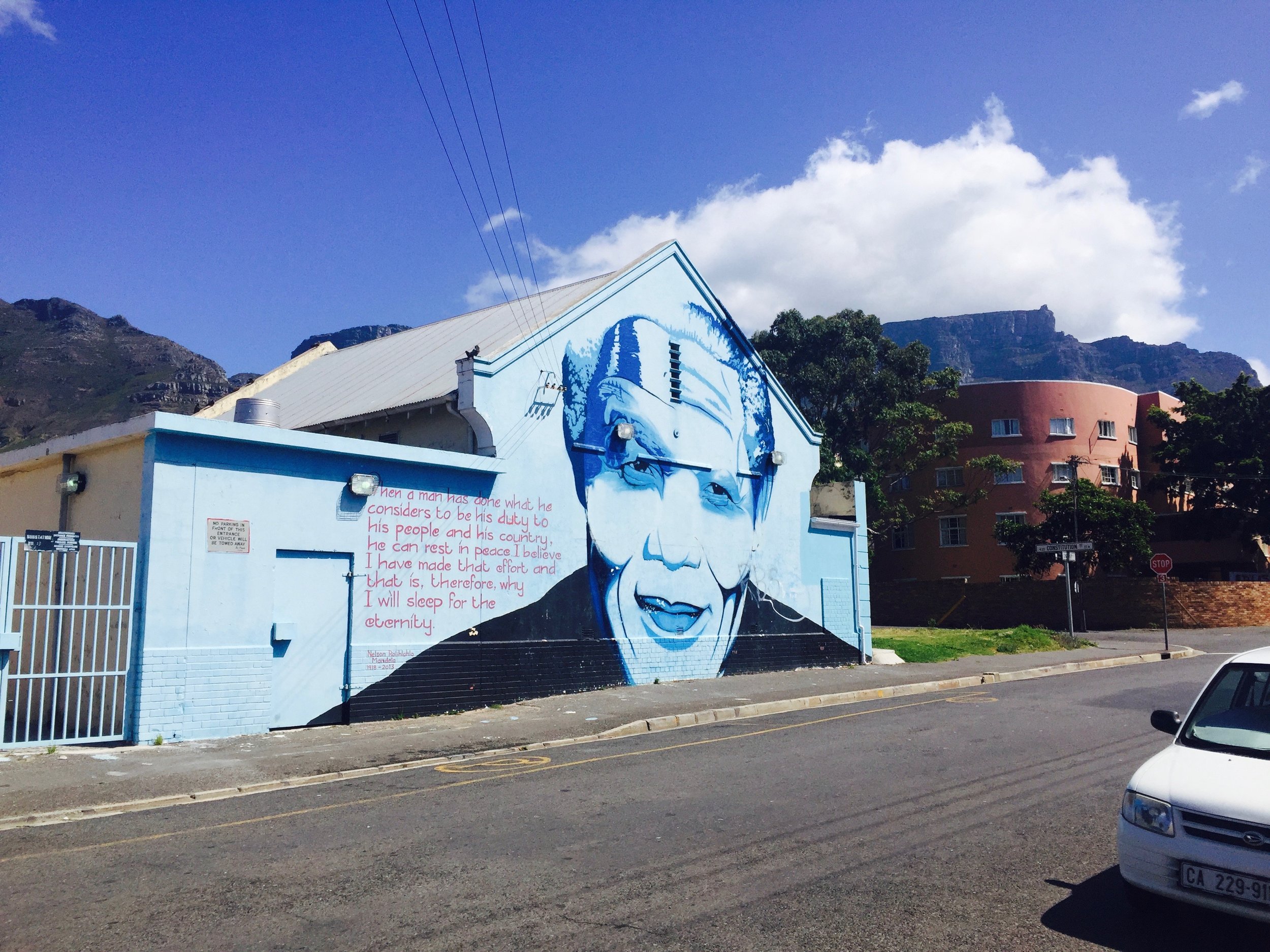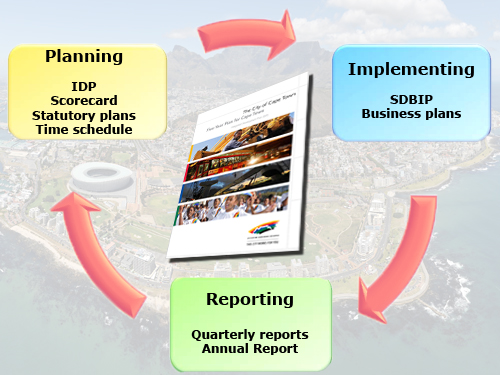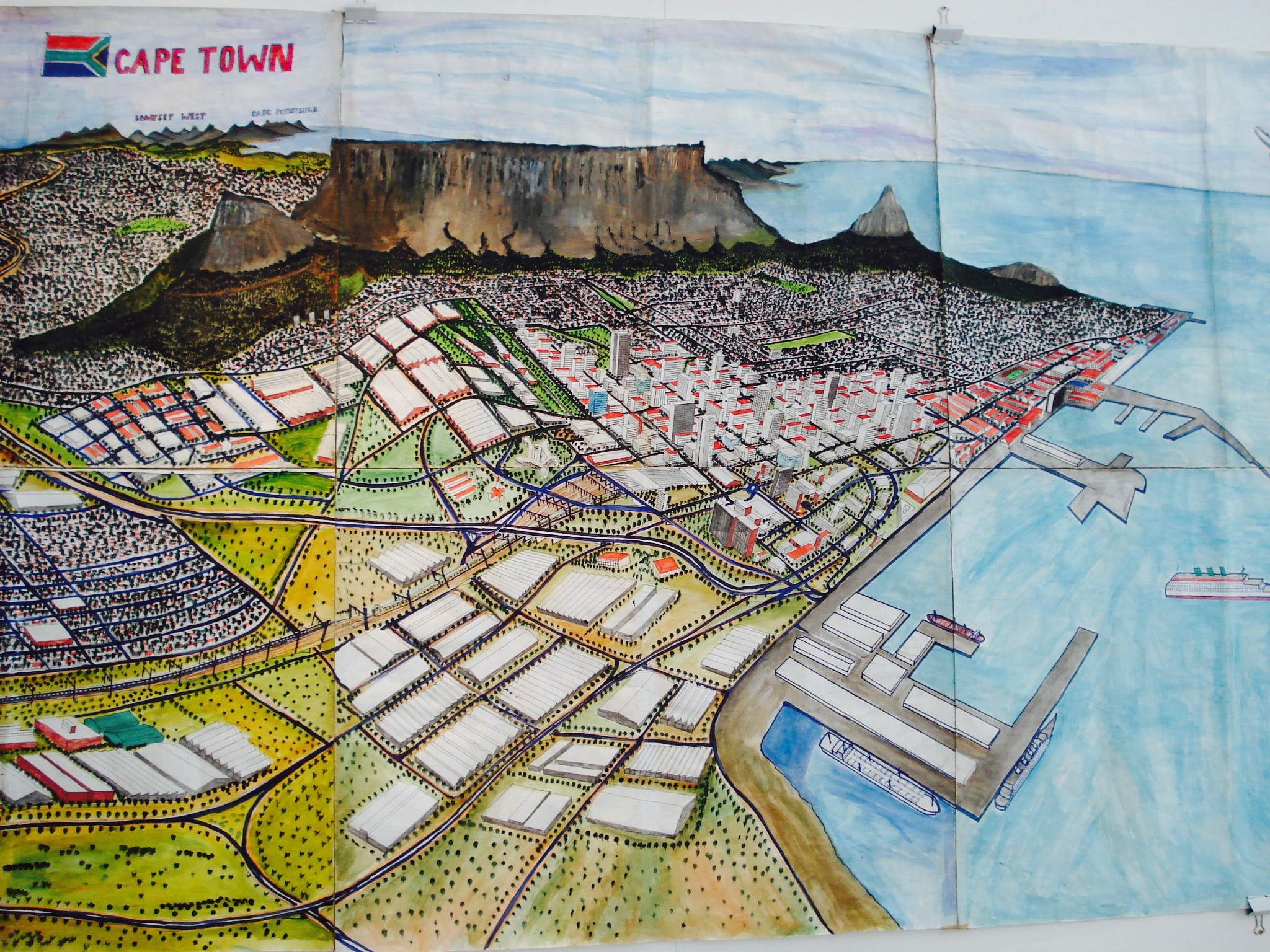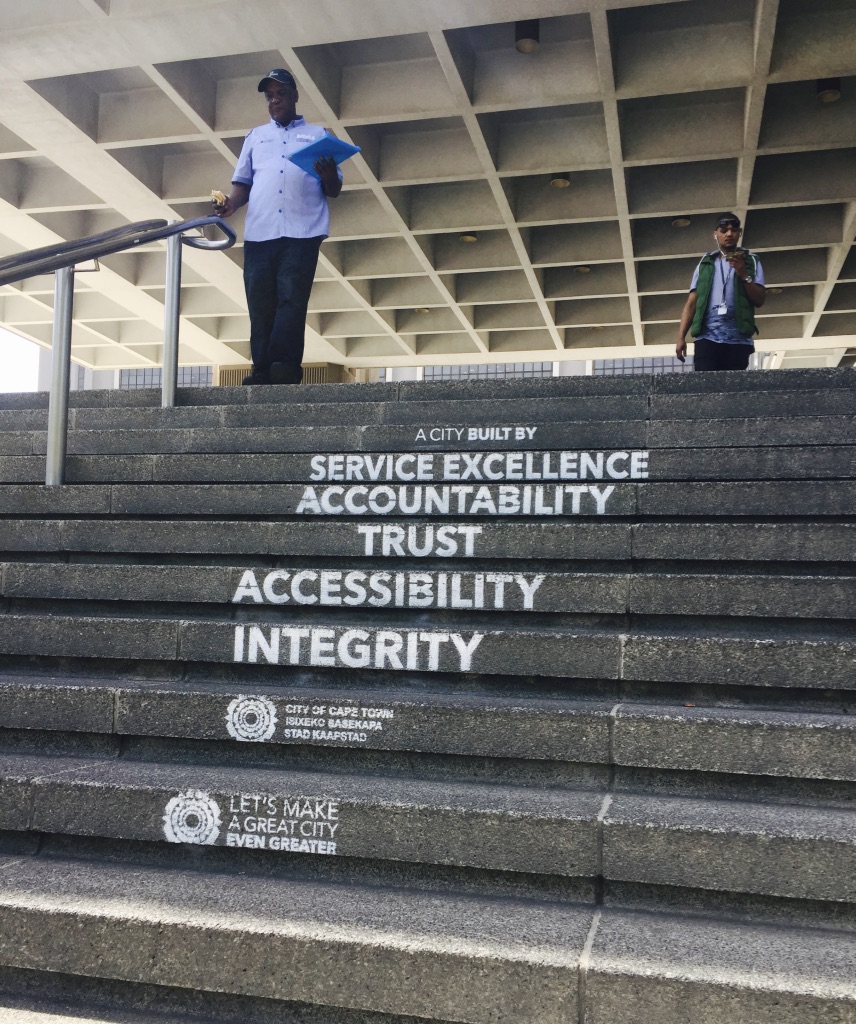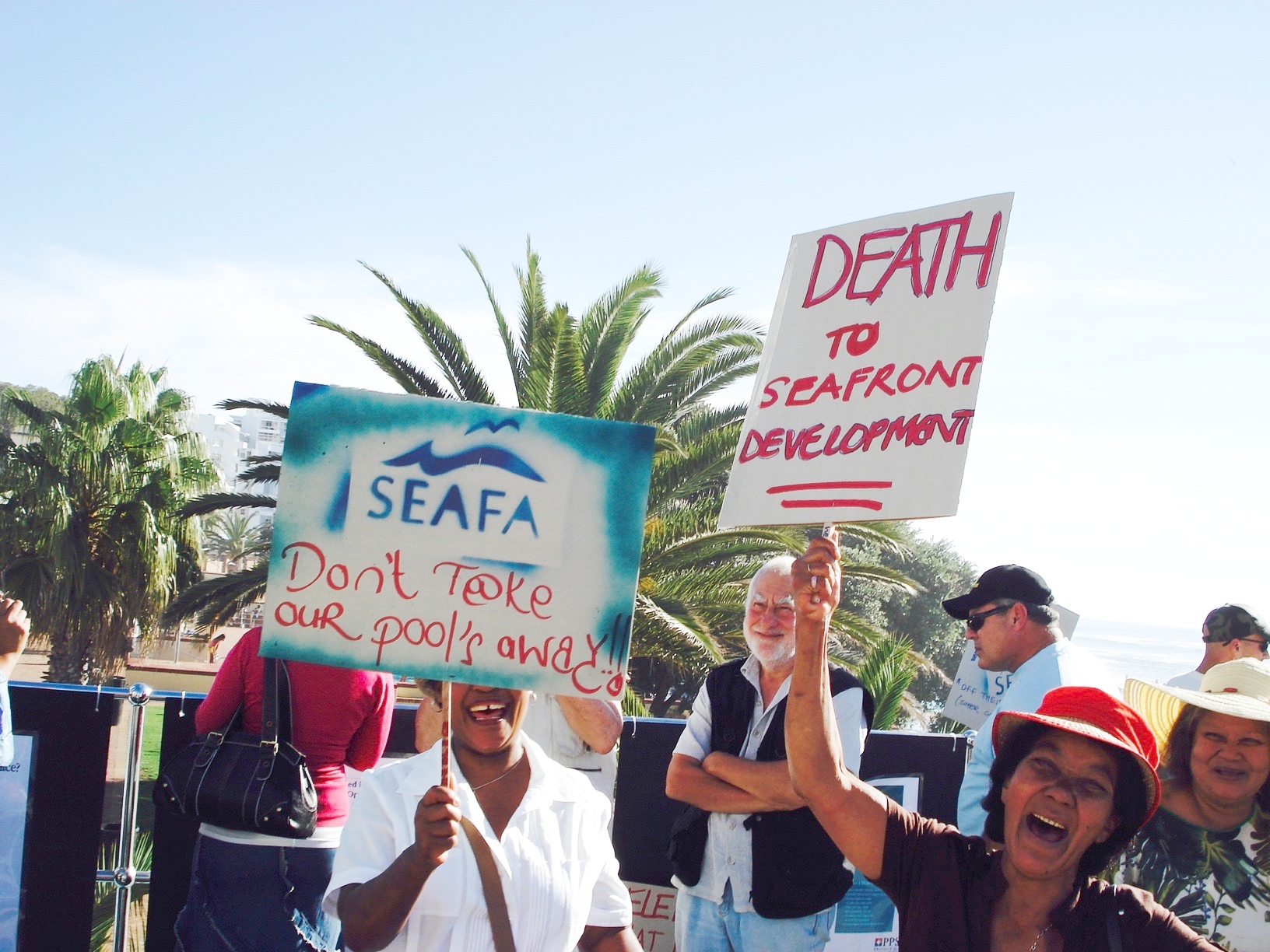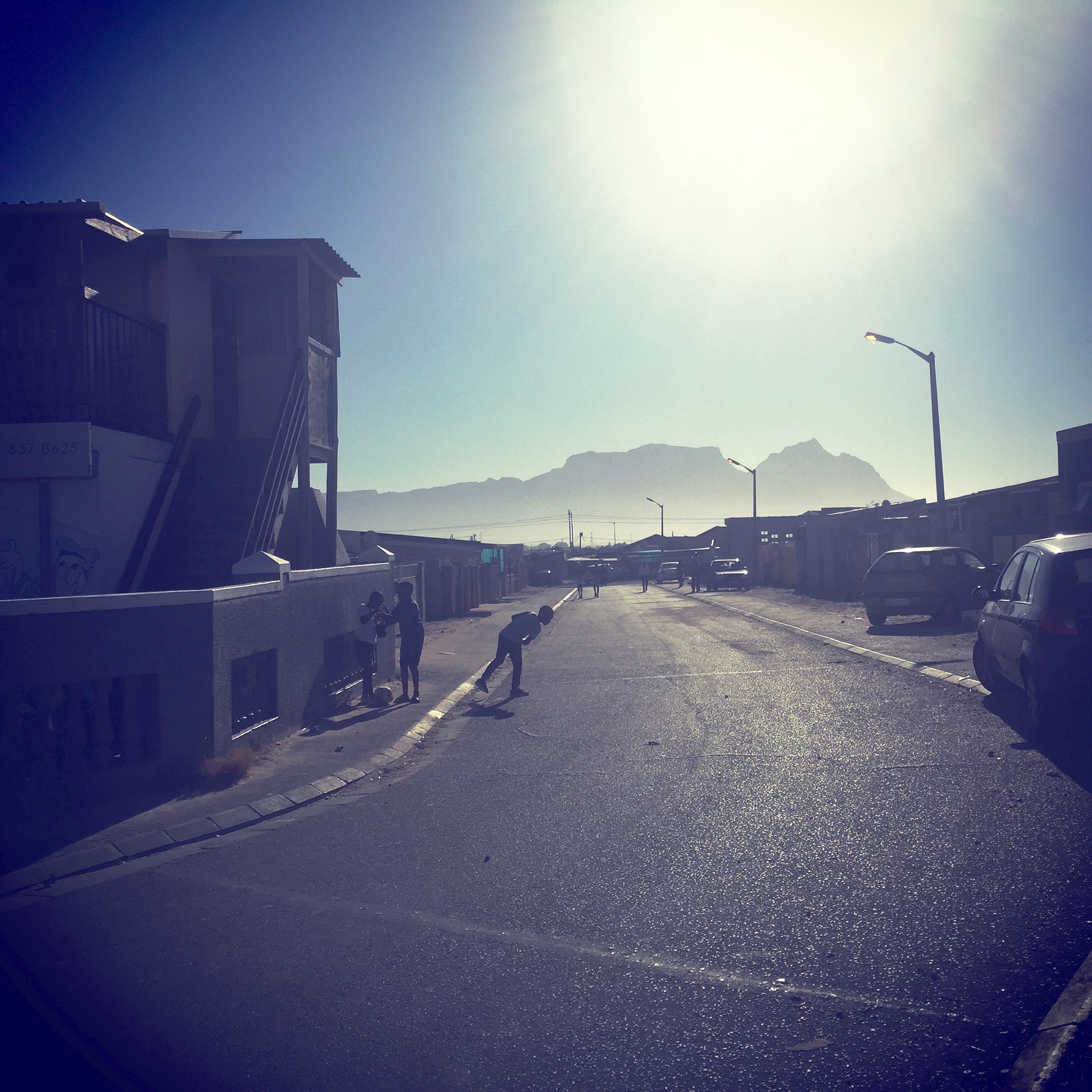Before the Water Runs Out: The Challenges Facing Cape Town
Cities, centuries past, have fallen when life giving water dried up, but few have had to face this possibility until recently. Climate change and unsustainable ways of living have led a number of cities, in our contemporary age coming close to the point of total water shut down. The situation is escalating and every city in water challenged regions have to now face the potential problem head-on, or its citizens will be led into futures that look dangerous and bleak.
This time has arrived for Cape Town, where predictions are that the city will run out of water in April 2018. After a few months of urging households to curb their use of water, the municipality insists it has a plan and there won't be a point at which the citizens will face day zero. Experts though are unconvinced and ask what led to this, pointing to signs that started a decade back, and a clear and unequivocal message given in 2007 that the city would face a challenge from 2015, noting that nothing was done to plan for the eventuality.
As Day Zero approaches, it is increasingly apparent that government is unprepared to avert what could potentially become a full-on humanitarian crisis. Even if Cape Town does manage to address the challenge partially, the future appears to offer more of the same. There is no industry that is not dependent on water, and Cape Town's already highly unequal society contains the seeds for a challenging future scenario.
In this blog, I won't rehash the issues behind this problem already raised, but I will reflect on three areas where attention could be focussed, all of which are connected to ideas of culture and culture shift. The first is about local government itself and about participatory governance, the second about the role of the media and the last about the role of citizens. These are not short term fixes, but talk rather to the long term changes the city as a whole need to grapple with.
Culture, Governance and Cities
Culture, as defined by UNESCO "is that complex whole which includes knowledge, beliefs, arts, morals, laws, customs, and any other capabilities and habits acquired by [a human] as a member of society". In this definition, it is implicit that culture is always in process and in relation to others. Culture is what we make together, and as such it is something that can be shifted together. This is important when we have to consider how we organise ourselves as societies.
Governance refers to the process of governing, its not just about government. It is the political processes of decision making which includes broader society, networks and markets. It recognises the importance of norms, power and language, in addition to laws, for the organisation of society. Governance is a key topic for many today as ideas around the collective take on new meaning in a technologised world - where information can be made more easily available and communication allows us to connect more instantaneously, and potentially influence in ways that were not possible earlier.
For cities internationally, governance has also taken on new importance. As cities become more complex: grow exponentially, are more connected globally, are more culturally diverse, where mobility and basic infrastructure are often challenged; many cities have recognised the vital importance of co-producing their cities with their citizens. The issues cities face today are just too big, too resource intensive for governments to address alone. Thus participatory governance of all kinds are being tested in any number of cities. This has also led to more radical forms of municipalism, as a response to the collapsing economic order, and a growing uneasiness with modern politics and the practise of democracy. The embrace of city co-production is a significant institutional cultural change for governments who have to shift thinking from being drivers, to being facilitators and partners in the governance process.
What does this all mean for Cape Town and its water problem? It comes down first to how the local municipality approaches governance currently and a shift in culture it needs to confront if it truly wishes to be resilient into the future. Big problems require collective action. Secondly its about citizens understanding and acting on their agency. But first something about cities generally.
Decision Making Challenges in Local Government
Cape Town like many other South African cities, is a hierarchical beast. Decisions are often made by the Mayor and Exco, ratified later via caucus's and Council. The role of Council (the gathering of elected politicians) is meant to be for setting policy, providing oversight and making decisions in respect to policy principles. However in reality political influence is often exercised daily. The roles of highly paid officials with technical skills have often been seriously compromised by politically expedient, short term thinking, decision making. An administration can be waylaid by such actions, and long term plans delayed in the process, Instructions given can also conflict with technical advise and with business plans. These plans, are important - the result of long term planning and evaluations, debated and agreed by multi-party portfolio committees. They can be used to hold government accountable for the what, why and how of its work.
The extent to which power is centralised and wielded has resulted in administrations bowed to political will. This has lead to cultures of fear amongst officials in many municipalities. Some may say strong centralised leadership is a good thing. But leadership has to be linked to a vision that is generative and far reaching, where principles are widely shared, and where implementation brings long term value to the system.
Leadership in government ideally should have its ear to the ground, be in tune with citizens concerns. Sadly consultation within government has become a tick box exercise, politicians and officials see citizens as a nuisance and speak only to the central issues that get them the necessary votes when the time comes.
The Cape Town Challenge: Communication and Participation
Cape Town is not unique in many respects above, the problems are rife across municipalities in the country. But there have been troubling regional level issues in the Cape for some time, raised often by activists, which have received only fleeting and surface attention by the media. These include the local administration's (property) development at any cost approach evident in multiple cases around the city. These hide even deeper ideological considerations within the country's official opposition.
With the ruling party at a national level so openly derelict in its duties, eyes have been taken off the ball at other levels of politics and governance. Where the media should be playing a watch dog role, it has been ravaged by the impact of the internet on the publishing industry - many dailies have let go of senior journalists who had long term memories of institutional change at local governments. Today news desks are often mobilised by juniors and interns, who lack the nuanced understandings of experienced"hacks" exposed to successive regime changes. Its easier in such contexts for multiple signs of trouble brewing, to be missed.
What are the most recent signs that display the depth of the current problem? These are evident in the languages employed and the implicit value systems behind them. When the water problem went public, local government through communication from its Mayor emphatically told its citizens everything is under control: the role of homeowners was to cut down on water usage. In the messaging, government officials who are meant to deliver programmes are conspicuous by their absence. No wide mobilisation of society took place beyond this one way communication strategy, no technical advice was shared on how to cut water usage, no meaningful and sustained engagement with academia and business was initiated to share skills and networks and find solution. Business was exempt from addressing its use of water and still is. The approach appeared to say that the city knows best and only it can deal with the problem.
The City of Cape Town's values statement, sprayed on the stairs leading to the Civic Centre.
A number of Capetonians have offered support and raised alternative approaches, based on long term and deep knowledge of the water systems. However the City, has on the whole, hidden behind the challenge of legislation as a shield preventing it from engaging with broader views. This closed approach, does not foster innovative responses, moreover it shuts doors to meaningful participation.
A Culture Shift in the Municipality?
The City of Cape Town's particular cultural issues internally and how it engages externally, are I believe, critical to understanding the current looming crisis and how to move beyond it. Shifting cultures sadly is not a quick fix - habits are hard to break. Beliefs and morals can only be shifted when individuals or institutions recognise there is a problem. A shift from a top down, parternalistic approach, towards a more sustained long term engagement with its citizen base (its academia, non-profit sector, community based organisations, religious communities, media and its business community) requires deep humility. It requires the ability and committment to reach out, listen and hear, to be empathetic, to be responsive. It needs to be based on a recognition that we are in a crisis together and everyone has a part to play. An ongoing sustained dialogue with all relevant groupings in society is essential in this respect.
The question is how can officials and politicians be empowered to act as facilitators and not just as drivers? In order to become better at working with its external stakeholders, there is some very hard work that needs to be done within Cape Town's local government to shift its culture internally. It needs to live its stated values.
Citizens in Cape Town coming together to successfully protest planned developments of the Sea Point Promenade. The more recent Reclaim the City campaign continues the tradition, focussing on social housing.
What can citizens do further?
There is much that government can be do externally. But citizens themselves can organise and demand culture change and in the process expand its own agency, building a stronger, more resilient shared culture together. Concerned citizens working with academia and community based intellectuals need to connect in proactive, value driven networks, to articulate a new vision for Cape Town in a water scarce future to share with government. This needs to broad based and has to move beyond anger and recriminations, but has to be ultimately rooted in ends that ensure social justice for all. Its impossible to make changes in a context of basic resource shortage without all levels of society being supported equitably. The massive social divide has been long overdue for shifting, perhaps the one good thing of this crisis is its potential for opening up a bigger dialogue for change.
One way to make this change, other than activism in civil society, is to work through and reform local government's own structures from bottom up, Citizens need to understand better how local government works and to hold it accountable, beyond simply voting. Advocating reform in the way government handles public participation is one, involvement on ward committees is another.
"The ward committee system is said to play a critical role in giving meaning to the notion of “the people shall govern”. This is so because local government is regarded as the level of government closest to the people and ward committees are just one way to ensure that citizens give input to the decisions that local councils make." SA Government News Agency
These are challenging structures, but a concerted efforts between those who are prepared to engage in them can initiate a culture shift towards better participatory governance.
Then is also the role and the responsibility here for the media to ramp up its ability to report critically and fairly. This may well be the most challenging aspect, and here the role of the alternative media sector maybe important and its expansion vital. This too creates an opportunity for citizens to become commentators, to use social media to draw more people into conversations.
Ultimately then the opportunity in this for societal culture change at a city scale is for building our capabilities as citizens. To enable civil society to chart new better ways for engaging with local government, to grow new and better partnerships for governing our cities into new uncertain futures, together.
Conclusion
The crisis of water is a very real one, with potentially grave implications for Cape Town. It can break the city or it can spur it to make systemic changes. By recognising the cultural shifts that need to happen in the broad system of governance, understanding the respective roles of stakeholders within it, holding government accountable with the support of the media, and engaging in the democratic process in deeper ways, broader society can begin to acknowledge and embrace its agency. By working together, alternatives can be found that truly work for all.

